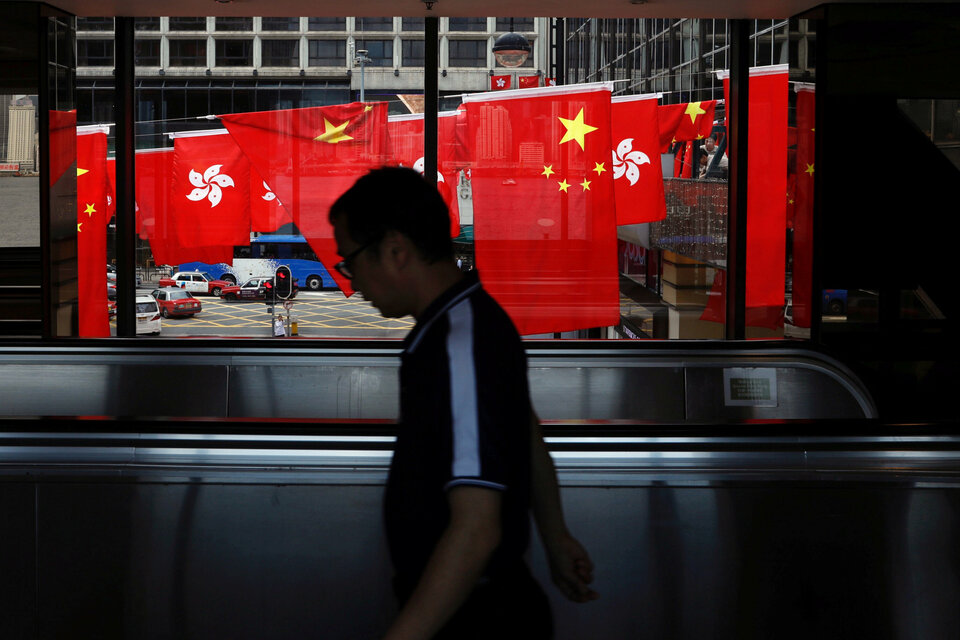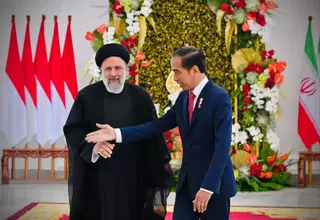Hong Kong Wealth Gap at Its Widest in Decades as Handover Anniversary Nears

Hong Kong. As Hong Kong marks 20 years since the former British colony was handed back to China, vegetable seller Lau Mei-tin is in no mood to celebrate.
Soaring property prices have pushed up rents and had a knock-on effect as businesses raise prices on goods and services, forcing people like Lau to find extra work.
"You have to work yourself to death. If you don't work and work, you can't cover living costs," Lau said at her food stall in a city wet market.
"The situation in Hong Kong is terrible," she said.
Income inequality has reached its highest level in more than four decades, according to government data, as a red-hot property market squeezes the city's most vulnerable people and risks fueling social tensions.
The city of 7.3 million people has the world's third largest concentration of individuals worth more than $30 million, behind London and number one New York, according to a global wealth report by real estate consultancy Knight Frank.
Hong Kong had 4,080 ultra high-net worth individuals in 2016, the report said, but mainland China has more than three times that number and many of them have bought property in the territory.
Despite government efforts to alleviate poverty, the city remains among the most inequitable in the world, said charity Oxfam, citing recent census data.
The wealthiest 10 percent of households earn nearly 44 times more than the poorest 10 percent who make an average of HK$2,560 ($328) per month, according to a 2016 household income report published by the Census and Statistics Department this month.
Hong Kong's Gini coefficient for household income – a widely used measure of income disparity – rose to 0.539 last year on a scale from zero to one, the highest rating recorded in over four decades. Zero represents equality.
Singapore, another Asian financial hub, saw its coefficient fall to 0.458 in 2016, the lowest in a decade. The United States recorded a figure of 0.394 in 2014, while the United Kingdom came in at 0.358 in 2013, according to the Organization for Economic Cooperation and Development (OECD).
Housing Discontent
Hong Kong's property market, one of the world's most expensive, is a stark example of the widening wealth gap.
An apartment of less than 200 square feet can cost as much as $500,000 in Hong Kong, where home prices have surged more than 137 percent since the financial crisis in 2008, propelled by a supply shortage, low interest rates, and big flows of money from the mainland.
Nearly 30 percent of city households, or around 2 million people, live in subsidized public housing but the waiting time for these units is now over four years.
Many poor and elderly can only afford to live in small cubicles or subdivided flats, said Kalina Tsang, senior manager for Ofxam in Hong Kong.
"One of the most urgent things for the new government to do is increase the public rental protection housing in Hong Kong so that poor people can have a decent living," Tsang said.
Hong Kong-leader elect Carrie Lam, who takes over on July 1, has said she is "very determined" to tackle the high cost of housing, which helped fuel pro-democracy protests in 2014.
Hong Kong Chief Secretary Matthew Cheung, the city's former commissioner for poverty, said the government has a plan to free up land for public and private housing over the next 10 years.
"Property prices have always been a problem and still remain a problem that we need to tackle," he said.
The government is trying "but it's never enough," said 23-year-old Joyce Leung, who works for a recruiting firm and lives with her family because she can't afford to rent.
"I feel they are helping more the investors or the wealthy individuals than the general public."
Reuters
Tags: Keywords:POPULAR READS
Apple Wants to Increase Investments in Vietnam
Vietnam has become more important to Apple as the company seeks to diversify its supply chains away from China.China’s Top Diplomat Wang Yi to Visit Indonesia for Cooperation Talks
Chinese top diplomat Wang Yi will chair a policy coordination meeting aimed at strengthening Indonesia-China cooperation.President Jokowi Urges Global Restraint as Tensions Rise in the Middle East
President Joko "Jokowi" Widodo emphasized the importance of diplomatic efforts to prevent the escalation of conflict in the Middle EastKPK Identifies Sidoarjo Regent as Suspect in Corruption Probe
KPK has identified Ahmad Muhdlor Ali as a suspect in a corruption case involving the Sidoarjo Regional Tax Service AgencyEconomic Concerns Overshadow Security Worries for Indonesians in Iran
Indonesian citizens currently in Iran are more concerned about rising inflation than the security situation in the country.Popular Tag
Most Popular






















